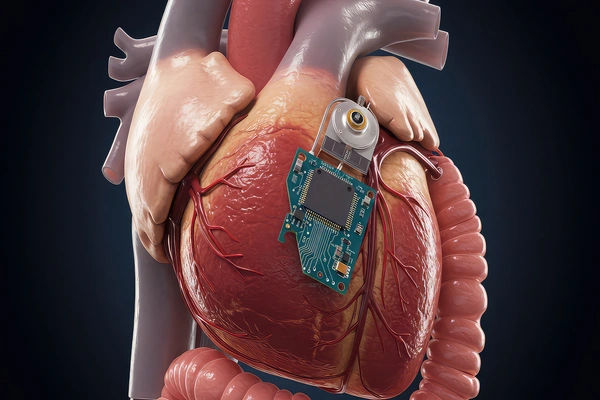- male
- 60 Years
- 22/01/2025
I'm curious about homeopathy as a treatment for blocked arteries and was wondering if it's effective? I've also noticed a burning sensation in my feet and hands and I'm scared if it's related. Could you shed some light on this and recommend what I might do?
More Cardiology Health Queries
View allI'm really anxious about my recent ECG results. They showed irregular heartbeats and sometimes sinus tachycardia. My doctor mentioned taking Nebi 2.5, but I'm unsure if it's right for me because I don't have blood pressure issues or any other major health problems. Also, I tend to overthink and have anxiety. Is this medication really going to help with my situation? I'm feeling quite torn about starting it. What do you suggest?
Nebivolol (Nebi) 2.5 mg is a beta-blocker often prescribed to manage irregular heartbeats and conditions like sinus tachycardia, and it can also help with anxiety symptoms by slowing the heart rate and reducing palpitations. Since you have anxiety and overthinking issues, Nebivolol might help alleviate these symptoms by controlling your heart rate. However, it's important to follow your doctor's advice and give the medication a try while monitoring your response to it. If you have concerns or experience side effects, discuss them with your healthcare provider. Additionally, consider incorporating anxiety management techniques such as mindfulness, therapy, or relaxation exercises.
Answered by 1 Apollo Doctors
I've been dealing with hypertension for the past year and recently found out I have mild LVH. I'm currently taking nebivolol and amlodipine, but my blood pressure still won't go below 13585. I'm only 34, and I'm worried about why these meds aren't working. Is there something else I should consider doing or trying?
Managing hypertension with mild LVH (Left Ventricular Hypertrophy) requires a comprehensive approach. _Current Medications_ 1. _Nebivolol_: A beta-blocker that helps lower blood pressure and reduce LVH. 2. _Amlodipine_: A calcium channel blocker that helps relax blood vessels and lower blood pressure. _Additional Strategies_ 1. _Lifestyle Modifications_: - Regular aerobic exercise (at least 150 minutesweek) - Weight management (aim for a BMI between 18.5 and 24.9) - Balanced diet (emphasize fruits, vegetables, whole grains, and lean protein) - Stress reduction techniques (meditation, yoga, or deep breathing) 2. _Monitor and Adjust Medications_: - Regularly monitor blood pressure and adjust medications as needed. - Consider adding a diuretic or an ACE inhibitorARB to enhance blood pressure control. 3. _LVH Monitoring_: - Regular echocardiograms to monitor LVH progression - Adjust medications and lifestyle modifications accordingly _Consult a Specialist_ Consider consulting a cardiologist to reassess your treatment plan and provide personalized guidance.
Answered by 1 Apollo Doctors
I've been experiencing this pinching pain in my heart area, and I'm really worried about it. Someone mentioned it could be musculoskeletal pain or maybe gastritis. Can you help me understand what musculoskeletal pain actually is and how it might relate to what's going on with me?
Musculoskeletal pain refers to pain that affects the muscles, ligaments, tendons, and bones in the body. It can be caused by various factors such as overuse, injury, poor posture, or muscle tension. To help relieve musculoskeletal pain, you can take over-the-counter pain relievers such as ibuprofen (Advil) or acetaminophen (Tylenol) at the recommended dosage. Additionally, applying a topical pain relief cream like Bengay or Icy Hot to the affected area can also provide relief. Stretching exercises, physical therapy, and heat or ice therapy may also be beneficial in managing musculoskeletal pain.
Answered by 1 Apollo Doctors
Disclaimer: Answers on Apollo 247 are not intended to replace your doctor advice. Always seek help of a professional doctor in case of an medical emergency or ailment.






